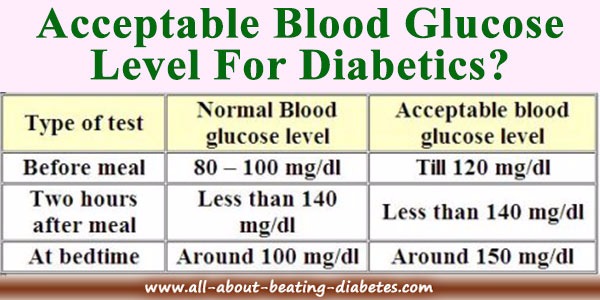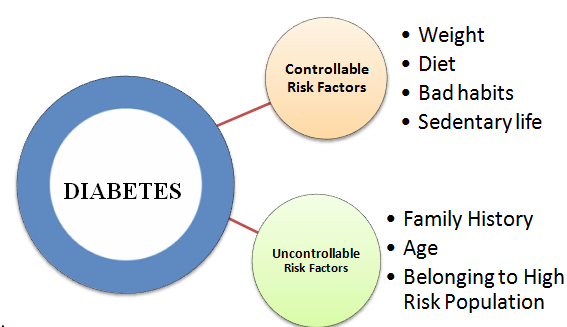- Home
- blood sugar levels
- acceptable glucose level
What Is Acceptable Blood Glucose Level For Diabetics?
It is important to diabetics to find out what their acceptable levels should be.
Usually, diabetics get high results when they measure their blood glucose levels. Sometimes, they are really worrisome.
It is good to be worried. Diabetes itself brings a lot of complex complications for you and your body.
When you fail to manage your diabetes, these complications can be very hazardous for your health, til causing infinite sufferings or death.
Now, you must understand that I'm not telling you all thee to frighten you. No way. The only aim is to put you synchronized with the right energy to fight your diabetes.
You deserve that positive energy for the hard battle against diabetes and any other negative consequence to your body.
What are acceptable blood glucose levels?
Acceptable blood glucose levels vary depending on the context and individual circumstances.
Generally, for someone without diabetes, a normal fasting blood glucose level is typically between 70 and 100 milligrams per deciliter (mg/dL). Two hours after eating, it should remain below 140 mg/dL.
For individuals with diabetes, target blood glucose levels can differ based on their specific treatment plan and goals. However, they are between the normal and ideal sugar level.
In other words, you should look for 120 mg/dl before meals, less than 180 mg/dl two hours after meal, and around 150 mg/dl at bedtime.
As you may see, these are high but not worrying figures for a diabetic. Although the ideal sugar level is under 100mg/dl; however, you cannot achieve this. Therefore, there exist a "tolerance level" for diabetics.
Please take note that although there exists this tolerance, you should put afford to control better your diabetes and to have near normal sugar levels.
At the beginning you cannot succeed, but with the passing of time, this should be your main goal.
Do not sleep over and think that persistent levels of higher than 120mg/dl are good for you although acceptable. By optimizing your blood glucose levels, you will keep also safe from diabetes complications.
What I can suggest to you is to build up your own table of blood glucose levels, write down all the results anytime you measure, and see how well you're been managing your diabetes.
The following blood sugar results table can a be an example for writing your own with associated chart.
By maintaining this log, you can gain insights into how well you're managing your diabetes and make informed adjustments to your treatment plan as needed.
This proactive approach will help you work toward achieving more stable and healthy blood glucose levels.
Conquering diabetes is an arduous struggle, demanding you to combat your cravings and resist the temptation to indulge in every tempting morsel.
Moreover, this battle entails a constant struggle to break free from the shackles of old, unhealthy habits that can exacerbate your diabetes.
Should you find this journey challenging and seek alternatives to maintain your blood sugar within a healthy range, it's important to remember that you hold the key to your own fight against diabetes.
It's within your power to effect gradual, sustainable changes in your lifestyle.
To prevail in this battle, it's essential to acknowledge that you are the sole architect of your diabetes management.
Your commitment to making incremental, sustainable changes is your greatest asset.
Consider seeking support from your healthcare team, educators, and support groups to assist you along the way.
These resources can provide invaluable guidance and encouragement as you embark on your journey towards better diabetes management.
By taking charge and making deliberate, gradual changes, you can significantly improve your prospects in the battle against diabetes, and ultimately, enhance your overall health and well-being.
Remember, you are not alone in this fight, and a support network can make it more manageable.
Related topics:
- Find out what the Normal Blood Glucose Level is.
- Get to know the Fasting Blood Glucose Level and what to do in case of high figures.
- Understand the numbers and limits related to Average Blood Glucose Level.
- How to read and interpret the results of a Blood Glucose Tolerance Test?
|
Written by Dr.Albana Greca Sejdini, Md, MMedSc Medically reviewed by Dr.Ruden Cakoni, MD, Endocrinologist |
Last reviewed 30/10/2023 |
References:
Diabetes complications Questions or Problems? Get Help Here
This is the place where you can ask a question about any aspect of diabetes complications.
It's free and it's easy to do. Just fill in the form below, then click on "Submit Your Question".








